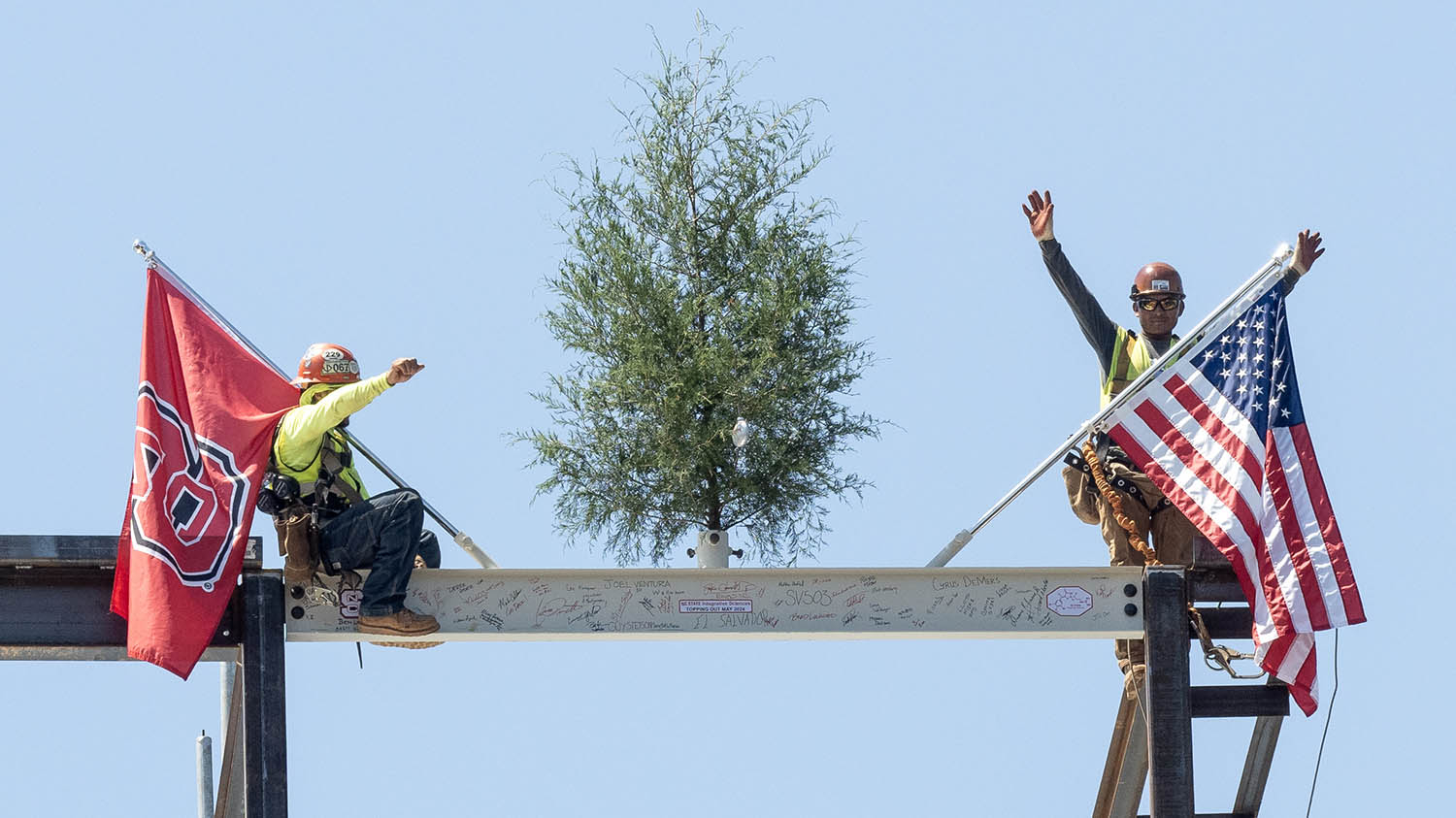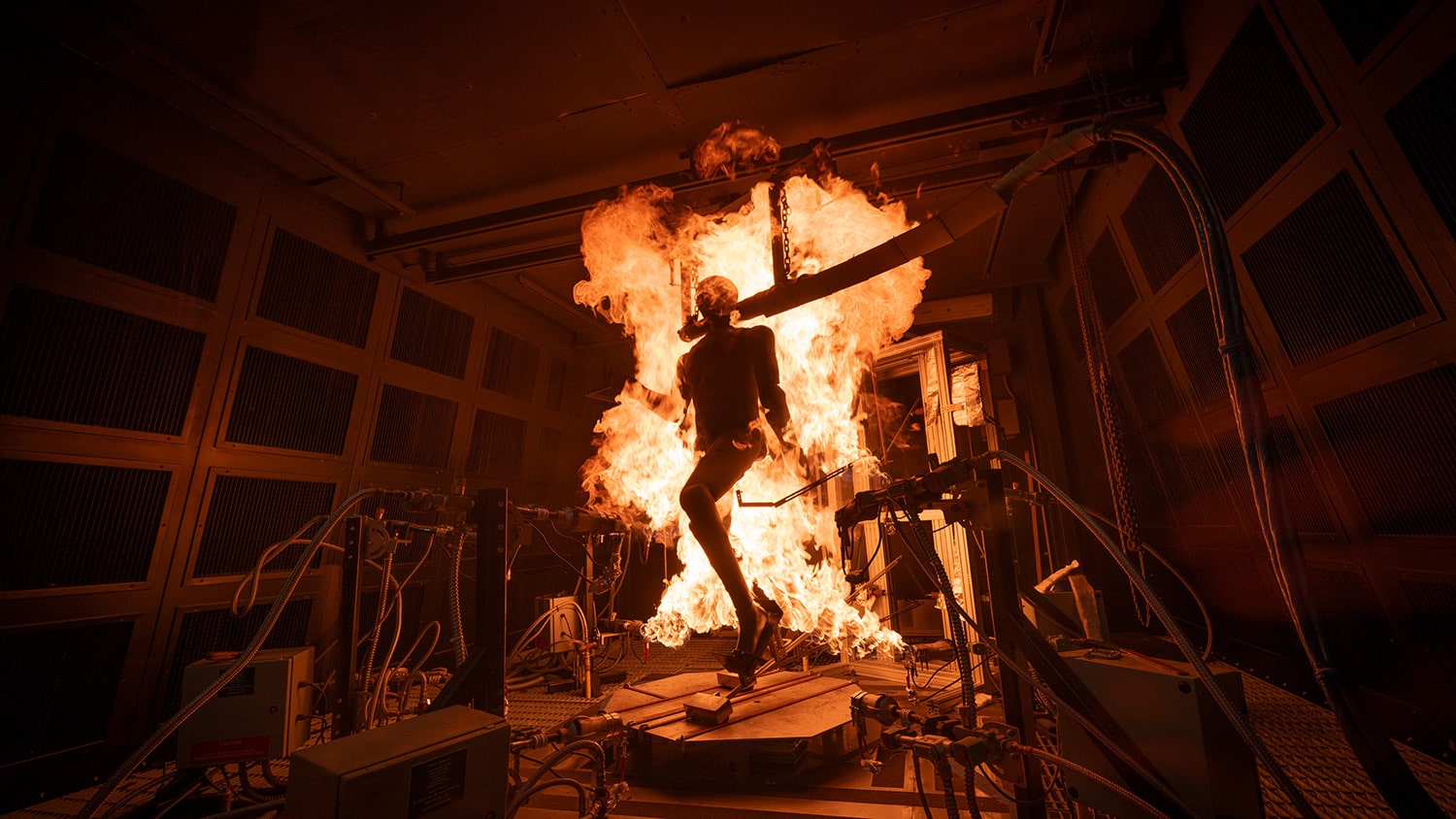‘Community Matters Here’: Inside NC State’s Creative Writing MFA Program
The program, known for its commitment to variety and experimentation, is the only one of its kind in the Triangle.
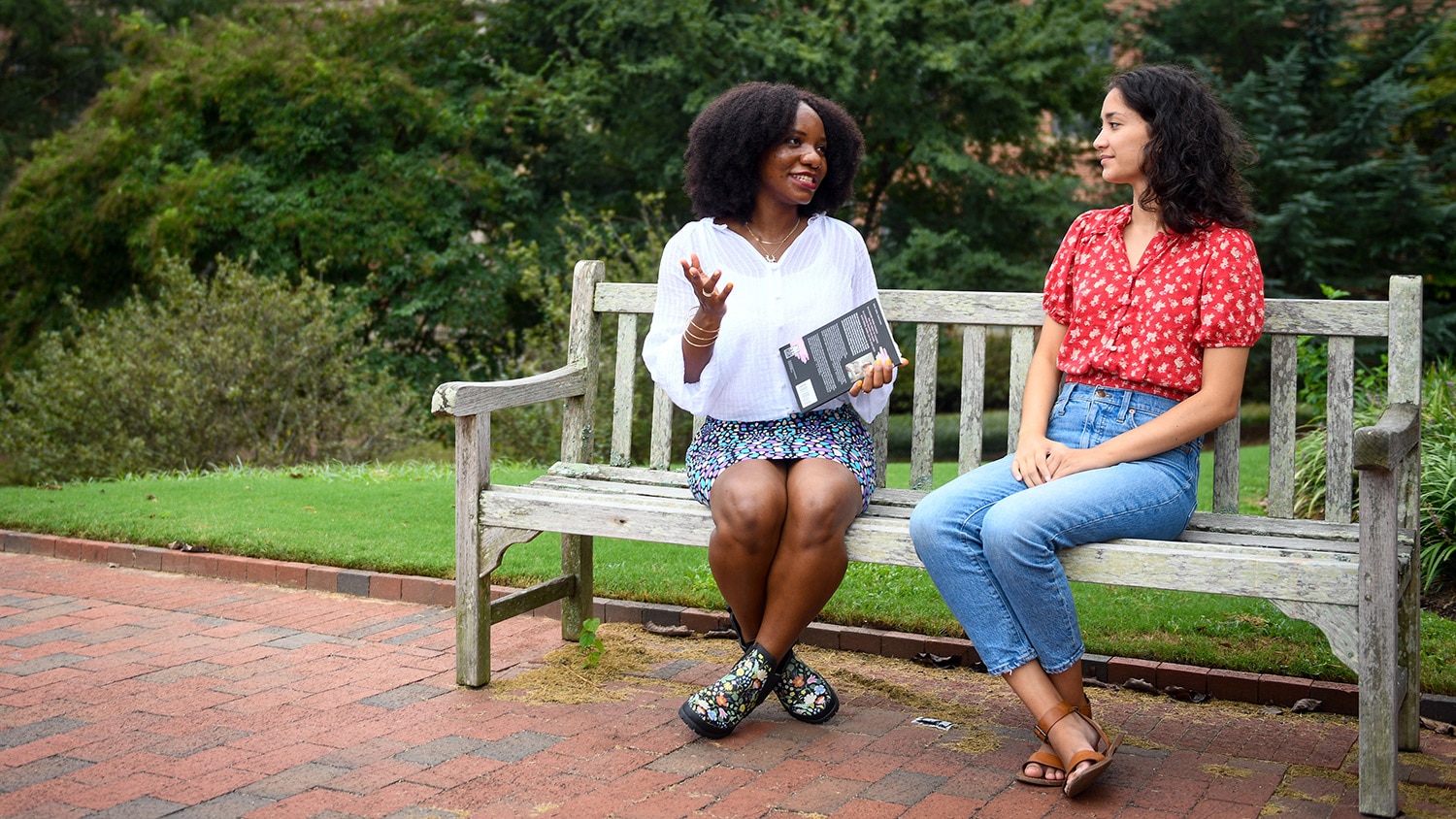
When Meghan Tanaka was preparing to graduate from the University of Mississippi with a double major in English and philosophy in 2020, she knew she wanted to go on to pursue a Master of Fine Arts in creative writing with a specialization in poetry. What she didn’t know was which of the hundreds of MFA programs in the United States she should apply to.
“It was one of my professors who suggested that I apply to NC State,” she recalls. “He recommended it because the program has really good faculty, and also because it’s smaller. Small class size means you get a lot of faculty attention.”
Tanaka took her professor’s advice, and she’s glad she did. Now in her second year at NC State, Tanaka has flourished in the MFA program. The small classes taught by excellent faculty — including Dorianne Laux, whose sixth book of poetry, Only as the Day Is Long, was named a finalist for the 2020 Pulitzer Prize for Poetry — are a big reason why, of course. But there’s also one other factor her professor didn’t know about: the sense of community that pervades the program from top to bottom.
“For me, community is what sets this program apart from the others,” she says. “It feels really good to know that you can talk with your professors and your classmates about life and writing and the scary stuff we’re all going through. You’ve got people you can lean on.” (You can read Tanaka’s poem “Stargazer” in the literary journal Pigeon Pages.)
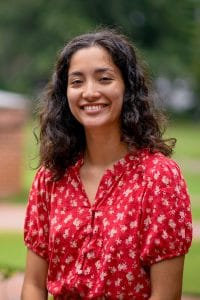
An Unlikely Pairing That Makes Good Sense
Although the casual observer might be surprised to discover an excellent graduate-level arts program at a world-class STEM university like NC State, the pairing actually makes sense when North Carolina’s rich literary history is taken into account. The state has been home to so many respected, beloved writers — including Thomas Wolfe, Zora Neale Hurston, David Sedaris, Jaki Shelton Green, Charles Frazier, Jill McCorkle, Randall Kenan, Lee Smith and Anne Tyler, to name only a very few — that it’s fitting for North Carolina’s largest university to host a program dedicated to continuing that legacy.
It also makes sense for a university whose mantra is Think and Do to feature a program devoted to tangible creative output, informed by a mixture of classroom instruction, peer support and faculty mentorship. The MFA is a two-year, 36-hour program comprising writing workshops, interdisciplinary coursework in academic subjects and a final thesis consisting of a book-length literary work supervised by a faculty advisor. The program has two tracks: fiction and poetry. All students admitted to the program receive full funding in the form of a graduate assistantship.
Since the program enrolled its first cohort of students in 2003, it has earned a national reputation for offering high-quality instruction while welcoming many different styles of writing, says Belle Boggs, director of the program.
“Thanks to the vision and example of the program’s founders — John Kessel, Wilton Barnhardt, and John Balaban — we’ve been open to and inclusive of and excited about a wide variety of forms and genres since the very beginning,” Boggs says. “That celebration of a diversity of styles — postmodernism, traditional realism, gritty Southern fiction, science fiction — is not something you can get just anywhere. But we’ve been doing that a long time, perhaps longer than any other program out there.”
The program’s openness to variety and experimentation has made it popular with prospective students, she says.
Celebration of a diversity of styles — postmodernism, traditional realism, gritty Southern fiction, science fiction — is not something you can get just anywhere.
“Last year we received over 275 applications for 13 spots,” Boggs says. “That means we can be selective in recruiting really amazing, interesting writers who build a great community.”
One of those new recruits is Rafeeat Aliyu, a first-year fiction writer from Kwara, Nigeria. Aliyu writes speculative fiction in the burgeoning Afrofuturist tradition. (You can see a list of Aliyu’s publications, and find links to many of them online, at her website.)
“I wrote my first story in primary school, about a family of ghosts, from the point of the view of the young ghost daughter,” Aliyu says. “I kept writing, and after undergrad I got a few stories published; but not many Nigerian magazines cater to what I write. Nigerians have always had these weird, fantastical stories about mermaids and things like that, but when it comes to literature, publishers mostly just go for literary fiction — writers like Chinua Achebe and Chimamanda Ngozi Adichie.”
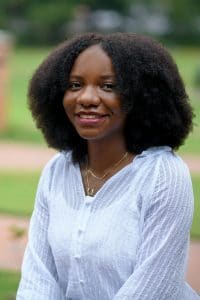
Aliyu heard that Western markets might be more friendly to her work, and in 2018 she met an alum of NC State’s program who told her she should consider applying. Now that she’s been admitted to the program, she’s happy to have found such a welcoming artistic home at NC State. Aliyu is studying under the supervision of speculative fiction writer Cadwell Turnbull, author of the acclaimed new novel No Gods, No Monsters. Turnbull’s fiction has appeared in Best American Science Fiction and Fantasy 2018 and The Year’s Best Science Fiction and Fantasy 2019.
The Key: Rigor and Nourishment
Over on the poetry track, faculty member Eduardo C. Corral — whose second book, Guillotine, was longlisted for the National Book Award in 2020 — says NC State’s emphasis on community is what drew him here.
“My first book of poetry came out in 2012, and after that I started doing poetry readings at colleges all over the country,” he says. “I did 12 to 15 readings a semester for years. I saw a lot of different programs during that time. But when I came to NC State, right away I noticed that community matters here. And that’s important, because the key to making any writing workshop successful is two words: rigor and nourishment. You have to have both, working in tandem. And that only succeeds if the students respect each other. Community is what makes that kind of respect possible.”
Community is what sets this program apart from the others.
When asked what it’s like to teach poetry at a STEM school, Corral laughingly replies, “The undergrads will catch any mistakes I make in anything having to do with math — especially when it comes to grading! The percentages do have to add up to 100, you know?”
He goes on to note that scientists and engineers are a naturally inquisitive bunch. “They’re trying to figure out how to make bridges safer, how to make energy systems more environmentally friendly; they’re problem solvers, and that lends itself to writing poetry. The trick is to remind them that there’s no equation for how to write poetry, so they have to draft a new set of questions for every poem. I help them focus on the questions, not just on the solutions.”
Alumni Making Their Mark
NC State’s MFA program has helped many outstanding writers find their voices. The program’s alumni include:
- Threa Almontaser, whose first book of poetry, The Wild Fox of Yemen, won the 2020 Walt Whitman Award and was recently longlisted for the National Book Award.
- Emily Cataneo and Arshia Simkin, who launched the Redbud Writing Project, an adult education writing school offering classes in fiction, nonfiction and poetry, both in person and online.
- Leila Chatti, whose debut poetry collection, Deluge, was published by Copper Canyon Press and won the Larry Levis Prize from Virginia Commonwealth University.
- Noel Crook, whose debut poetry collection, Salt Moon, won the Crab Orchard Series in Poetry First Book Award and was published by Southern Illinois University Press.
- Tyree Daye, whose debut poetry collection, River Hymns, earned the American Poetry Review‘s Honickman First Book Prize. Daye was also a 2019 recipient of the prestigious Whiting Award in poetry, one of the largest and most prestigious awards given to emerging writers in the United States. Daye’s second poetry collection, Cardinal, was featured on the New York Times list of the best poetry of 2020.
- Kij Johnson, whose first collection of short stories, At the Mouth of the River of Bees, contained stories that won Nebula and Hugo Awards. Johnson now teaches at the University of Kansas.
- Sarah Grunder Ruiz, whose debut romantic comedy, Love, Lists, and Fancy Ships, comes out this fall with Berkley/Penguin. Sarah teaches in NC State’s First Year Writing Program.
- Alyssa Wong, who as a student in the program won the 2015 Nebula Award for Best Short Story and the 2016 World Fantasy Award for Short Fiction.
Boggs says many of the program’s alumni demonstrate a remarkable commitment to the program even after they graduate. “Alumni frequently come back for readings and workshops, and to mentor our students,” she notes. “For example, Cadwell Turnbull studied in the program under John Kessel and Wilton Barnhardt, and now he’s our newest faculty member. His addition to the program continues their teaching tradition and at the same time brings an important new voice into the program.”
Another alum is Therese Anne Fowler, whose fourth novel, Z: A Novel of Zelda Fitzgerald, was a 2013 New York Times bestseller and was adapted into the Amazon TV show Z: The Beginning of Everything, starring Christina Ricci. Her latest novel, It All Comes Down to This, will be published in June 2022.
The program’s famed openness to difference helped Fowler find her way into writing after she earned a bachelor’s degree in sociology — not the typical academic preparation for a fiction writer, she notes.
“I came out of the social sciences and did not have a background in reading literature,” Fowler recalls. “For someone like that, who also has the desire to express themselves through fiction writing, it’s important to know you don’t have to be a literary scholar to get into the program.”
Fowler says the most important thing she got out of the program was learning how to critique her own work. “I think you can learn to write without studying it the way we did in the program,” she says, “but because the workshops require you to assess and deconstruct and analyze other people’s work and then produce some kind of commentary on it, that process taught me how to do that for my own work. And gaining that ability helped me shorten the path from aspiration to success.”
The Transformative Impact of Philanthropy
As successful as the program and its alumni have been, now it’s poised for even greater success thanks to Tony McLean Brown ’83 and his family, who earlier this year made a $1 million gift to support the MFA program. The gift marks the largest for a humanities department at NC State and one of the largest funded endowments in the College of Humanities and Social Sciences.
“This gift is transformative,” said Dean Jeff Braden when the gift was announced. “Tony and his family are creating a legacy that will launch the careers of many gifted poets, novelists and other writers for years to come.”
Director Belle Boggs says the Browns’ generous gift will allow the program to greatly expand its efforts to recruit students from diverse backgrounds, likely doubling the impact of the program’s diversity recruiting efforts.
Our students care deeply about their impact on the community.
Boggs says the Browns’ gift will also support the expansion of the program’s community engagement efforts. “Our students care deeply about their impact on the community,” she says, “and we’re exploring ways to support them in programs of outreach teaching, publishing and literary ventures that will positively affect the literary landscape of North Carolina and beyond.”
For example, in 2016 poetry students Tyree Daye and Alabama Stone founded a literary outreach program called Street Smarts and the Arts that hosted informal poetry workshops with homeless youth in Raleigh. The program ended when funding cuts shuttered the homeless center where the workshops were held, but Daye and Stone created a record of the participants’ artistic achievements by publishing an anthology of the poetry produced in the workshops.
The MFA program also sponsors an annual poetry contest and an annual fiction contest, both of which have no entry fee and are open to all North Carolina residents. The fiction contest, which is currently taking submissions, awards two prizes:
- The James Hurst Prize for Fiction ($500) is awarded to the best unpublished short story of no more than 5,000 words.
- The Shorter Fiction Prize ($250) is awarded to the best unpublished short story of no more than 1,200 words.
The postmark deadline for entries in the fiction contest — hard copies only, no electronic submissions — is Oct. 15, 2021. Visit the fiction contest webpage for more details.
For prospective students who are interested in applying to the MFA program, Boggs says the program is first of all looking for students who have extraordinary talent. “But in addition to that talent and spark,” she says, “we also want people who are going to be generous, enthusiastic, constructive, supportive members of our community. We want people who want to be part of a team.”
Boggs says she couldn’t be more happy about having joined this particular team.
“When I first came here as a visiting writer, not to be corny about it, but I fell in love with the program,” she says. “I love being on a big campus that offers cool events like the AV Geeks at the Hunt Library, lectures about public science, art exhibits, musical performances, so many amazing opportunities — but at the same time we have this small, tight-knit community of writers.”
If its history is any indication, this small program will continue to make a big impact on students, the university, the community and the literary landscape for a long time to come.
- Categories:

